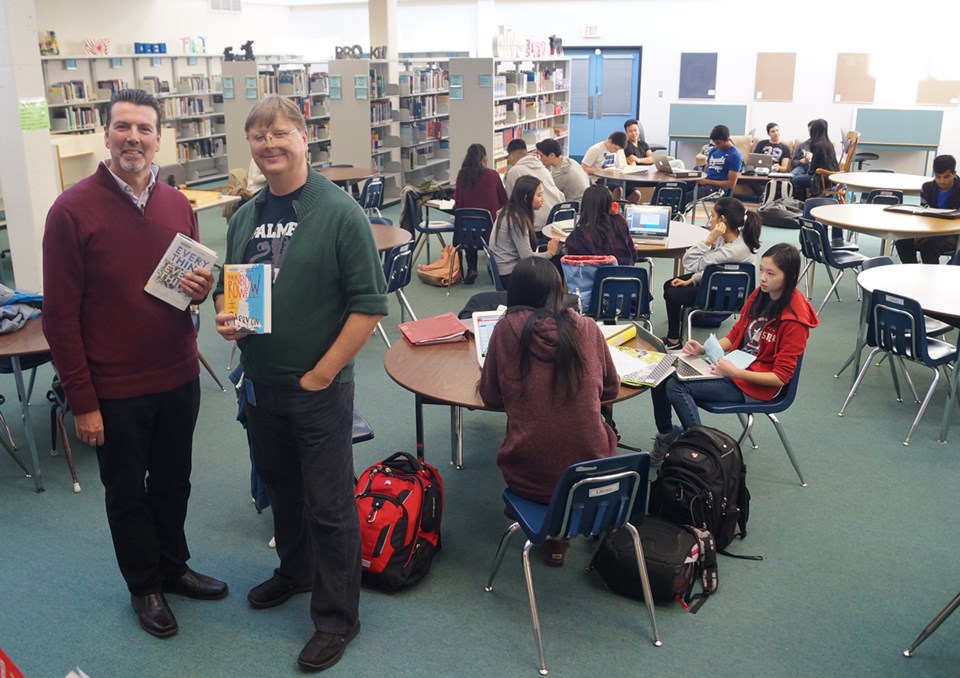As the Richmond School District mulls closing some underutilized schools to bring others up to capacity in order to qualify for seismic upgrades, it is also grappling with another, albeit smaller, issue of re-purposing space.
As school library bookshelves diminish in numbers, the libraries they’re found in are increasingly being used for other non-traditional purposes.
Despite the shift from paper to digital, libraries are just as important, if not more important as ever, for learning, according to the district’s library coordinator Gordon Powell.
“There’s certainly more interest in providing digital resources, and libraries have moved away from relying only on print resources,” said Powell.
“But libraries are still an integral part of the learning process,” he added.
The trend of print stocks declining for online sources has been well documented, however, libraries and the librarians who serve this long-standing institution are now serving many different, but equally important, roles.
In the realm of librarians, libraries are now being described as “learning commons,” said Powell.
Librarians, such as Powell, describe a learning commons as a shared space designed to engage students beyond simple research to a more exploratory and collaborative learning experience. It allows students to create their own environment to improve learning.
Learning commons aim to foster intellectual engagement with a free exchange of ideas and dialogue, be it online or in a designated physical space.
Whereas libraries were once rows upon rows of book stacks, they are slowly becoming welcoming places for students to engage in a wide range of activities.
At Palmer secondary, teacher-librarian Tom Morley is helping to transform the school library into a learning commons.
In one corner there are couches for dialogue; in another, a row of Mac computers for the likes of humanities research; a side room has a green screen for video production; and in another corner, space for a 3D printer (Morley awaits adequate funding).
Morley’s library has seen fewer and fewer books as the years of the digital revolution have progressed.
But that doesn’t mean a new library at a new school (such as in the City Centre neighbourhood) will be any smaller than existing ones, said Powell.
“Yes, there’s more room for a class or two to work in the library,” he said.
But in place of book space, has come “maker space,” said Powell.
Of course, amidst this evolving learning commons are stacks of fiction books.
“There will always be a place for books,” noted Powell.
But as far as non-fiction goes, as a wide range of information becomes more accessible to students online, the role of the librarian is becoming ever so important, contended Powell.
“It’s not so much that kids can’t find out anything online, but rather there is so much stuff out there that they need a little hand-holding at the outset,” said Powell.
In an emerging era where anyone can effectively be a publisher, librarians will need to help students sift through what is credible and what is not, said Powell, who calls this process “becoming information literate.”
Meanwhile, school librarians — who are also expected to teach a handful of classes — are also at the forefront of technology being introduced into schools.
“Teacher-librarians are good instructional partners with teachers in incorporating technology in the classroom,” said Powell.



